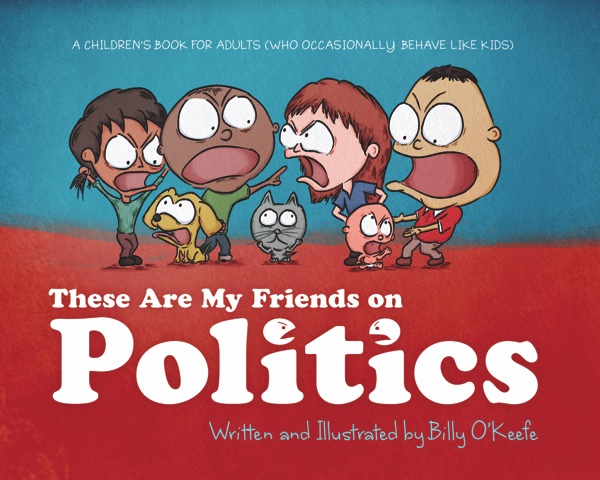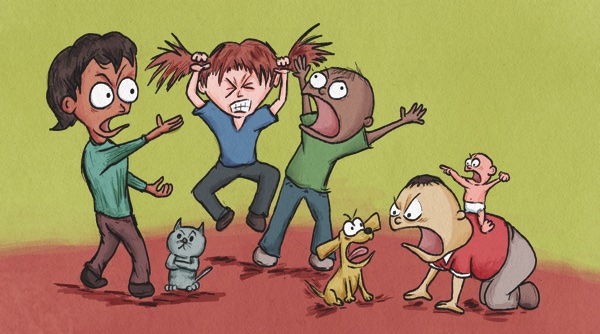
(Illustrations by Billy O’Keefe)
As has been the case since roughly February 2015, it’s an election year. But not just any election year! This is the most important election in the history of the country [since 2012, anyway], and the stakes will never be higher [until 2020]. It’s a showdown between the candidate who singlehandedly can save the country and the candidate who will lead us to levels of ruin not seen since [insert name of the last President you didn’t vote for] was in office, and everybody is talking about it.
Naturally, as you head to your next party, wedding, funeral, work function and/or family holiday gathering, the prospect looms large that some folks who do not share your worldview will want to debate politics with you. Should you engage? No, goodness, absolutely not. You already know this. You already told yourself you would never take the bait again after the last time you took the bait. Why are you even reading this?
Regardless, here are five tips — lifehacks, if you prefer, even if the definition of “lifehack” has been so mistreated that the notion of keeping your apartment clean by cleaning it every day is now considered “lifehacking” — for debating politics in vain in a completely inappropriate setting.
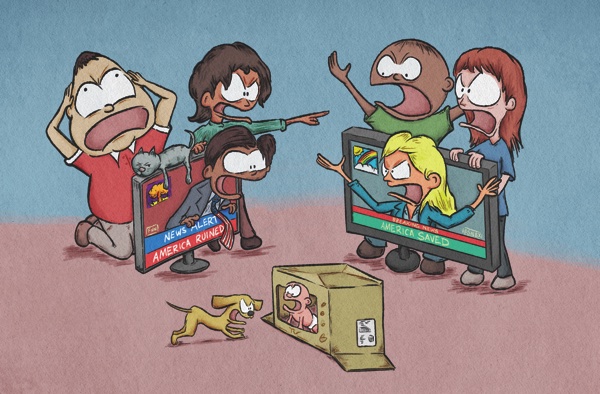
Seriously, maybe just don’t.
Look, you have thoughts — about education, the economy, the war(s), gun violence, everything. They are strong thoughts, and the bitterness of this election and all the recent events encircling it have caused your heels to become one with the ground in which you’ve dug them. That isn’t simply okay or fine — it’s invaluable, particularly if you’ve reached those convictions thoughtfully and knowledgeably.
But here’s the thing: That same courage of conviction applies to everybody else — your friends, your coworkers, your in-laws, the wedding party, even the person in the casket who, depending on if he lived in Chicago and if you believe the stories about Chicago voters, may still cast a vote or two in this election despite passing away last week. (I’m from and love Chicago, so I can make this joke.) Their heels are similarly entrenched despite their beliefs not being your beliefs. Could they change your mind? No. So what makes you think you can change theirs?
Nope. Don’t.
I know what your answer is. “Because I’m right, and they just don’t see it!” Hey, maybe you are. Someone has to have a good answer for these problems, right?
Unfortunately, operating on the premise that you’re right and they’re wrong won’t lead to any kind of positive outcome when those folks are operating on the exact same premise in reverse.
Heck, it rarely works even if they believe there’s an inkling of truth to your statement. Do you think Bears fans don’t know Packers fans have it better than they do right now? Of course they do. Does that mean they’re going to jump aisles and root for the Packers instead? Yeah, probably some of them will. But those people are traitors. The vast majority are truly committed and will remain loyal to the Bears no matter how miserable it makes them in the weeks, months, years and probably lifetime to come. Where was I going with this again?
Oh right, debating politics. Yeah, no. Just don’t.
Here’s the advantage sports fans have: Players, loved and loathed though they are, come and go. And as Jerry Seinfeld wisely observed, the reason we love or loathe them comes down to what uniform they’re wearing and often little else.
This almost never happens in politics. President Obama cannot be traded to the Republicans, nor could the Democrats trade for Paul Ryan. And instead of laundry, the teams for which these folks play are dictated by ideology. Their tenures run uninterrupted for years and often decades, and because there are only two contending teams and neither team is particularly good despite racking up so many wins over the years, the hate from fans is far stronger than anything a Bears fan could muster for Aaron Rodgers.
This matters because, inevitably, debates about politics veer away from an issue’s complicated problems and solutions and straight into which single jerk is to blame for the whole entire decades-in-the-making mess that’s been made. And once you get into blaming politicians instead of bridging gaps and considering ways to solve problems that are far more complicated than one person or party, whatever chance the debate had at achieving any positive outcome is gone.
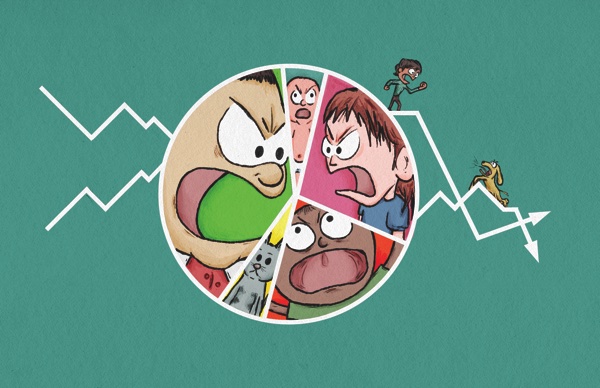
Is there not cake or an open bar or a dog you can focus on instead? Just go play with the dog.
At this stage, because you didn’t listen to steps one through three, frustration is an inevitability. You’ve thrown out a few cherry-picked news stories/headlines/tweets you vaguely remember reading to support your arguments, and your opponent has responded in kind. Eventually, someone succumbs just a little too much to frustration and either (a) so badly botches a point as to feel foolish when called out on it or (b) graduates from insulting the politicians to insulting the person they’re arguing with instead.
However this ends — be it tears, a tantrum someone secretly records and tags you in later, or the waitstaff taking away your slice of wedding cake because you were too on tilt to notice it had been served, and yes that was a perfectly amazing piece of salted caramel cheesecake you just forfeited — this is where it ends, and there are no winners.
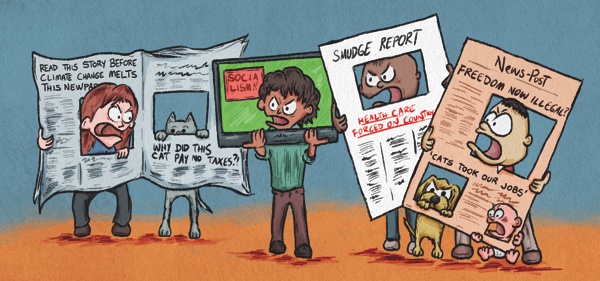
Seriously, have you even read the article?
Here’s the twist: None of this is to suggest we shouldn’t discuss education, the economy, the media, violence, war or any other issue that has become politicized. To the contrary, our best defense against the rampant politicization of everything — from the planet itself to those lazily-designed-but-whatever-they’re-just-cups red cups Starbucks uses to signify the end of the cease fire in the War on Christmas (TM) — is a healthy, mature and respectful dialogue. Even — heck, especially — when that dialogue is with people who disagree with you.
Because here’s the other twist, the one that people playing the politics game would rather we forget: Even when we disagree sharply on how to fix things and who broke them in the first place, we generally have far more in common than we don’t. We all want a safer country, better schools, breathable air, a healthy job market and a better tomorrow for our kids. Politicians love to drum into our heads that our differences are irreconcilable, because that’s the nature of a job where you spend nearly as much time campaigning as you do actually delivering (or not) on all those promises made. The more we embrace our common ground instead of our differences, the more honest we keep them. If the side effect is a better relationship and a slice of cake with the people who actually care about us, all the better.
Billy O’Keefe is the author and illustrator of These Are My Friends on Politics, a children’s book for adults who behave like kids, which is available now. It’s the one book about politics you can read with your loved ones without ruining the holidays. Learn more about the book here, and get a copy on Amazon, Barnes & Noble, or your favorite local independently-owned bookstore.


